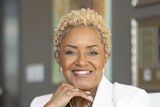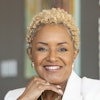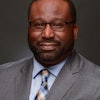In a forum held at Prince George’s Community College in Largo, Md. this week, the Washington Post staffers behind the paper’s “Being a Black Man” series discussed the numerous issues unveiled during the yearlong sequence of articles.
Before a rapt crowd of mainly Black D.C.-area residents, Post Associate Editor Kevin Merida, education reporter V. Dion Haynes, financial reporter Krissah Williams and social issues reporter Keith Alexander highlighted the struggles Black men face as revealed in their reporting. The forum’s moderator, PGCC English professor and African American Studies Institute director Mary Brown, assessed the impact of the series.
“We get a lot of students who miss that first chance coming right out of high school going into college, who might have been in the incarceration system. One of the stories that the Washington Post did was on one of our students [who] went to jail at 16 for robbery, spent eight years there, and now he’s back and he’s an honors student in the community college. So we have students who are dealing with the real-life issues that are being presented in ‘Being a Black Man,’” Brown says.
Merida says that PGCC is critical to the D.C. area as the city has no standalone community college within its borders, unique among America’s biggest cities. Merida says that one of his stories profiled a D.C. resident seeking HVAC training and “they sent him all the way from D.C. to Prince George’s Community College.
“Community colleges are a way in which a lot of our kids can find their way to college. … A lot of people aren’t ready or can’t afford to go off to the big colleges and they got responsibilities and they got bills that they already got to pay, they got people they have to take of, they can go there and still access education. … I think we should cover [community colleges] more.”
Getting coverage of community college issues and events is an uphill battle, Brown says, as PGCC hosted a “Saving Our Sons” panel last week that dealt with the same issues tackled by the “Being a Black Man” series. “Because we didn’t have Washington Post writers here, we couldn’t get the media out to report on that… even our own TV station didn’t show up when we had just regular folk talking about this issue. So I’d like to see magazines and papers doing more with just the average stuff that we do at community colleges, because some of them are very good.”
Click on this link to check out the “Being a Black Man” series on the Web.
–David Pluvoise
© Copyright 2005 by DiverseEducation.com


















